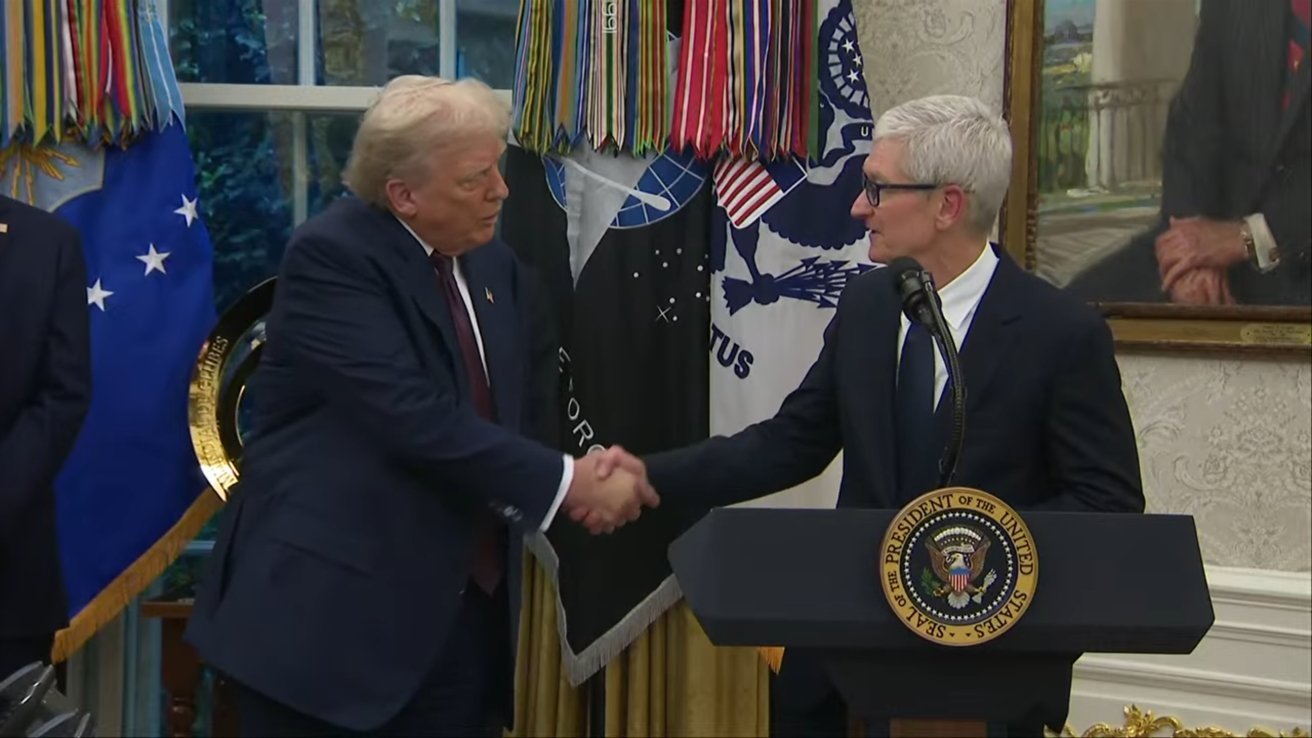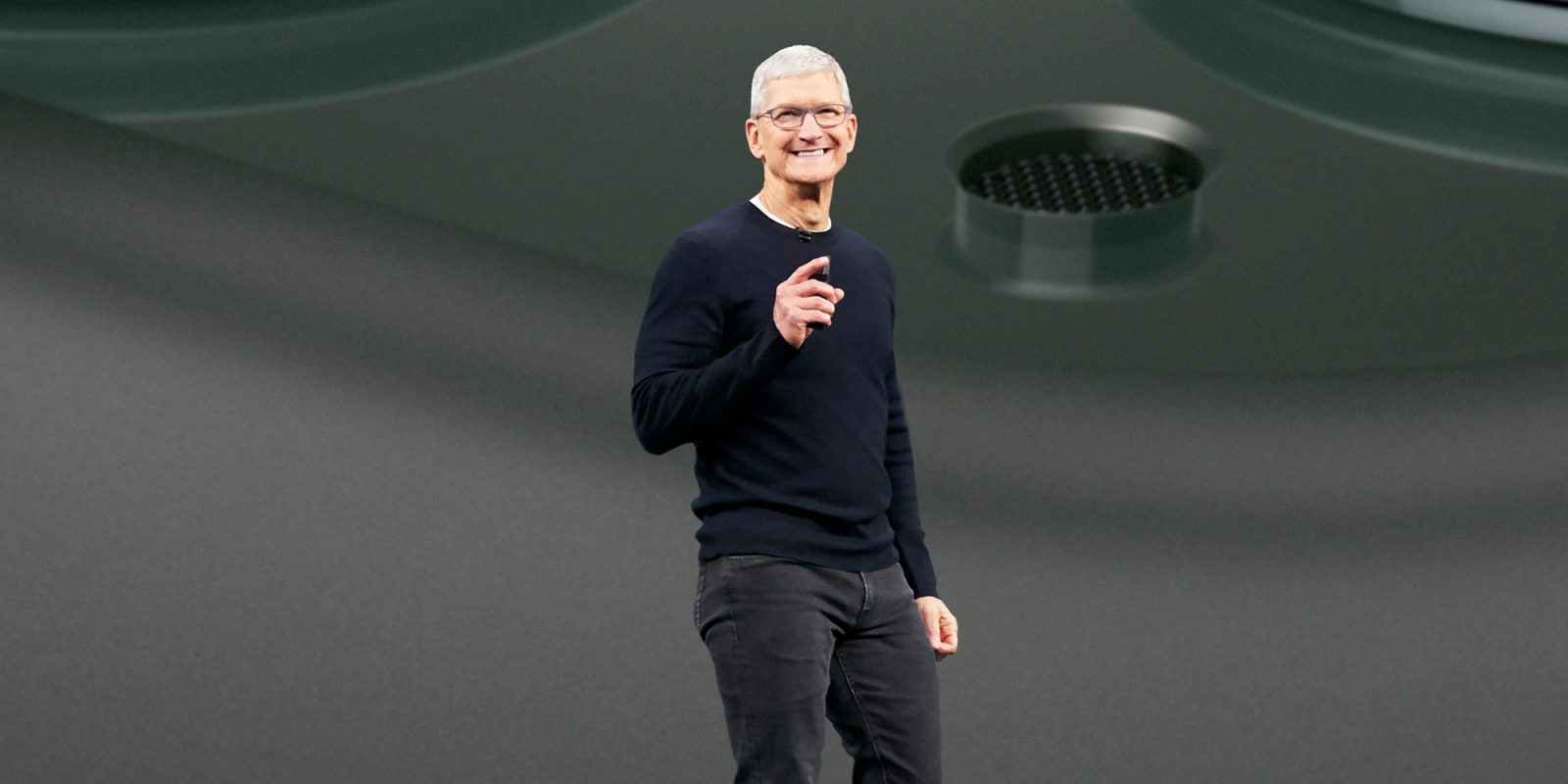Tim Cook and President Trump Convene in Tokyo to Bolster U.S.-Japan Economic Ties
Article Text:
In a significant move to strengthen economic relations between the United States and Japan, Apple CEO Tim Cook joined President Donald Trump at a high-profile event in Tokyo. The gathering, held at the U.S. Ambassador’s Residence, aimed to encourage Japanese investment in American enterprises and foster bilateral trade.
The event brought together a distinguished group of business leaders from both nations. Representing the United States were Tim Cook, OpenAI co-founder Greg Brockman, and Salesforce CEO Marc Benioff. On the Japanese side, attendees included SoftBank CEO Masayoshi Son, Toyota’s Taro Shimada, and Honda President Toshihiro Mibe. This assembly underscored the mutual commitment to enhancing economic collaboration between the two countries.
Commerce Secretary Howard Lutnick utilized the occasion to announce new potential investments, signaling a robust future for U.S.-Japan economic partnerships. These announcements are part of a broader trade agreement in which Japan has pledged to invest $550 billion in U.S. projects. Of this commitment, approximately $490 billion worth of deals were highlighted during the event, though some remain in preliminary stages. In return, Japan anticipates the U.S. will cap and reduce tariffs on Japanese goods, aiming for a more balanced trade relationship.
The evening’s menu featured black tiger shrimp with cocktail sauce, fresh crab, and wagyu beef, reflecting the event’s emphasis on hospitality and cultural exchange.
Tim Cook’s participation in this event is consistent with his proactive approach to engaging with the Trump administration to advance Apple’s interests. Over the years, Cook has cultivated a rapport with President Trump, characterized by direct communication and strategic discussions. This relationship has enabled Apple to navigate complex trade policies and advocate for favorable conditions in the global market.
For instance, in August 2019, Cook personally discussed with President Trump the potential impact of tariffs on Apple’s competitiveness, particularly concerning rivals like Samsung. This dialogue contributed to the administration’s decision to delay certain tariffs, highlighting the effectiveness of Cook’s direct engagement strategy.
Beyond trade discussions, Cook has been an active participant in various initiatives aimed at bolstering the U.S. economy. In April 2025, he attended a meeting with President Trump and other business leaders, where he reiterated Apple’s commitment to American innovation and job creation. Cook emphasized that Apple is a uniquely American company deeply invested in the nation’s growth, aligning with the administration’s focus on domestic economic development.
Cook’s engagement with the Trump administration extends to discussions on manufacturing and investment. In February 2025, he met with President Trump at the White House, likely addressing topics such as import tariffs and U.S. manufacturing. These meetings underscore Cook’s dedication to ensuring Apple’s operations align with evolving trade policies and economic strategies.
The Tokyo event also reflects a broader trend of strengthening U.S.-Japan economic relations. Japan’s substantial investment pledge signifies confidence in the U.S. market and a commitment to collaborative growth. For American companies like Apple, this partnership offers opportunities to expand operations, access new markets, and contribute to technological advancements.
In conclusion, Tim Cook’s participation in the Tokyo event with President Trump highlights the strategic importance of U.S.-Japan economic collaboration. Through direct engagement and mutual investment, both nations aim to foster a robust trade relationship that benefits their economies and promotes innovation. Cook’s proactive approach exemplifies how corporate leadership can effectively navigate and influence international economic policies for mutual gain.



